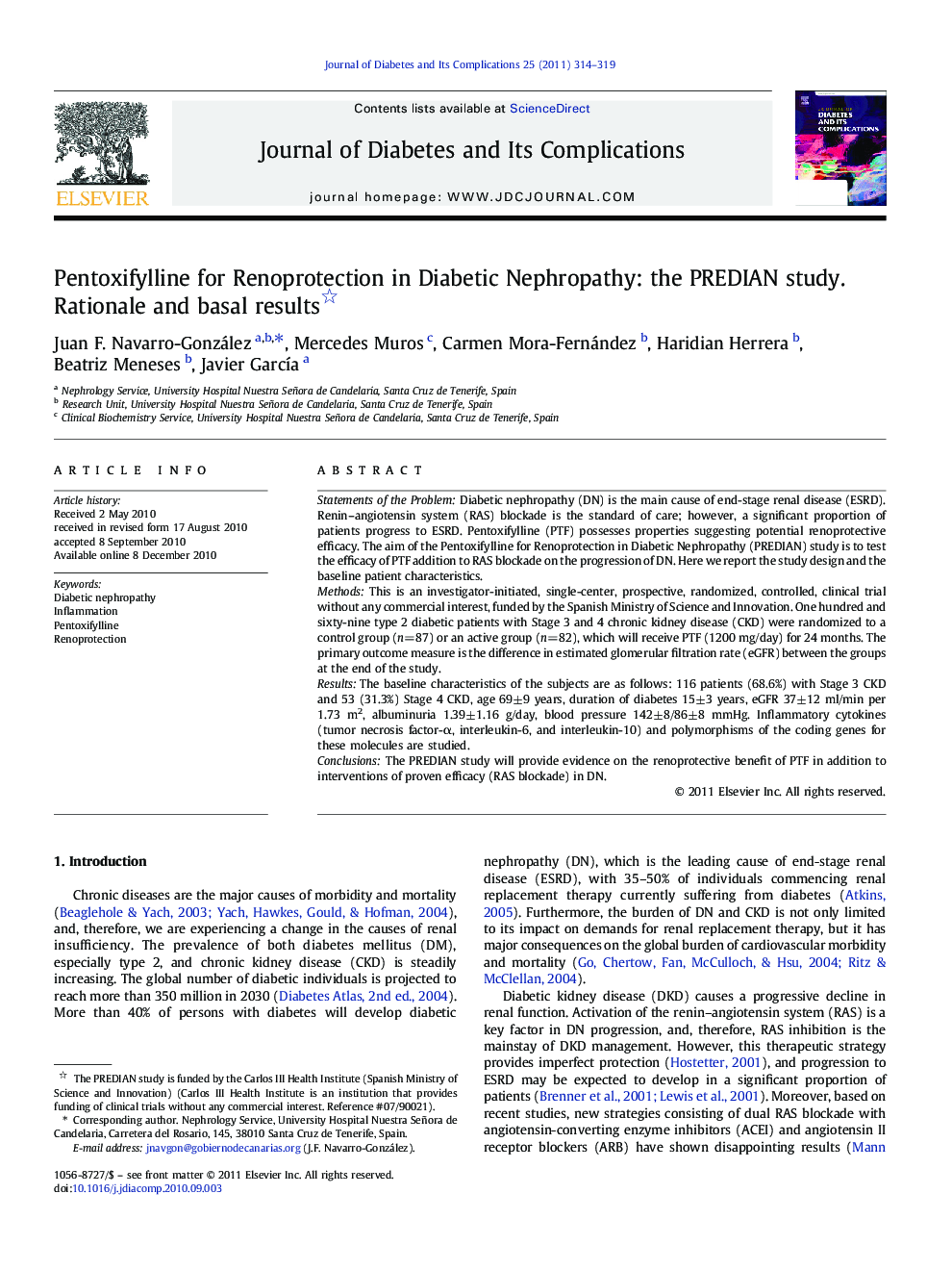| کد مقاله | کد نشریه | سال انتشار | مقاله انگلیسی | نسخه تمام متن |
|---|---|---|---|---|
| 2804438 | 1156872 | 2011 | 6 صفحه PDF | دانلود رایگان |

Statements of the ProblemDiabetic nephropathy (DN) is the main cause of end-stage renal disease (ESRD). Renin–angiotensin system (RAS) blockade is the standard of care; however, a significant proportion of patients progress to ESRD. Pentoxifylline (PTF) possesses properties suggesting potential renoprotective efficacy. The aim of the Pentoxifylline for Renoprotection in Diabetic Nephropathy (PREDIAN) study is to test the efficacy of PTF addition to RAS blockade on the progression of DN. Here we report the study design and the baseline patient characteristics.MethodsThis is an investigator-initiated, single-center, prospective, randomized, controlled, clinical trial without any commercial interest, funded by the Spanish Ministry of Science and Innovation. One hundred and sixty-nine type 2 diabetic patients with Stage 3 and 4 chronic kidney disease (CKD) were randomized to a control group (n=87) or an active group (n=82), which will receive PTF (1200 mg/day) for 24 months. The primary outcome measure is the difference in estimated glomerular filtration rate (eGFR) between the groups at the end of the study.ResultsThe baseline characteristics of the subjects are as follows: 116 patients (68.6%) with Stage 3 CKD and 53 (31.3%) Stage 4 CKD, age 69±9 years, duration of diabetes 15±3 years, eGFR 37±12 ml/min per 1.73 m2, albuminuria 1.39±1.16 g/day, blood pressure 142±8/86±8 mmHg. Inflammatory cytokines (tumor necrosis factor-α, interleukin-6, and interleukin-10) and polymorphisms of the coding genes for these molecules are studied.ConclusionsThe PREDIAN study will provide evidence on the renoprotective benefit of PTF in addition to interventions of proven efficacy (RAS blockade) in DN.
Journal: Journal of Diabetes and its Complications - Volume 25, Issue 5, September–October 2011, Pages 314–319